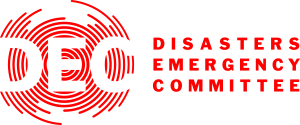
ResourceSpace has changed the way the DEC uses content, making it much easier for us to quickly make assets available both internally and externally during our emergency appeals.
Blog
9th August 2023

For charities and other NGOs, fundraising efforts often hinge on telling compelling stories. By focusing on the people whose lives you’ve changed, you can engage with your audience in a way that facts and figures fail to achieve.
But using stories and case studies as part of your fundraising efforts doesn’t come without its challenges. First and foremost, your organisation must have lawful and up-to-date consent for sharing personal information. And with fines for data privacy breaches continuing to grow, the cost of non-compliance could be devastating.
Unfortunately, staying compliant is easier said than done. Your organisation may use a wide range of fundraising materials featuring many different beneficiaries. The teams using these assets may be distributed across the globe. How can you ensure you’re following all the relevant regulations?
Keep reading for an in-depth look at the consent management challenges that charities face — and how you can tackle them.
The first thing to stress is that while we all have a general idea of what consent means, what really matters is the legal definition. Without keeping this front and centre, your consent management processes are destined to fail.
In the UK and EU, consent in the context of personal data is defined by the General Data Protection Regulation (GDPR) and its UK variant, the UK GDPR.
The GDPR defines consent as:
“…any freely given, specific, informed and unambiguous indication of the data subject's wishes by which he or she, by a statement or by a clear affirmative action, signifies agreement to the processing of personal data relating to him or her.” (Article 4(11))
As this definition makes clear, the bar for consent under the GDPR is high. You’ll need to approach consent carefully and with these specific requirements in mind.
You’ll also need to be aware that user consent must be easy to withdraw. The general rule is to make withdrawing consent as easy as giving it. If you can consent with a single click, you should be able to withdraw consent the same way.
Let’s look more closely at the specific privacy regulation that charities have to abide by to meet the GDPR’s consent requirements.
Here are eight of the most common challenges associated with modern consent management:
Effective consent management requires a combination of legal understanding, technological solutions and operational practices that are adaptable to the evolving digital environment and regulatory landscape - or a great consent management platform.
Most organisations that operate in the EU or UK must abide by the GDPR when processing personal data, but charities face some unique challenges. This is especially true when it comes to sharing stories of people you’ve helped.
These stories will often involve sensitive personal data. For instance, if you work for a healthcare charity, you may be sharing medical information about a beneficiary’s prognosis and treatment. Or, if you’re involved in human rights work, your case studies may reveal details of people’s religious and political beliefs.
As a result, you need to be even more diligent about managing consent. Sharing this kind of sensitive information without proper consent can lead to substantial fines under the GDPR. Most importantly, it can also negatively impact the people whose stories you are telling.
With this in mind, we can consider how to tackle the difficulties you might face with consent management.
Let’s begin with the initial step for any consent management process: making sure you get appropriate consent in the first place. Falling short at this stage could leave you with powerful fundraising collateral that you don’t actually have permission to use.
As we’ve seen above, consent has a very stringent definition under the GDPR. To make sure you stay compliant, you should:
If you keep these principles in mind, you’ll be well-placed to build a solid foundation for your consent management system. But getting consent is just the first step. Let’s look at how things should unfold once you’re over that initial hurdle.
[Learn more about the different ways of getting consent with our ‘Beginner's Guide to Managing Consent for Charities & Non-Profits’]
Under the GDPR, consent is not a “one-and-done” process. As the UK Information Commissioner’s Office (ICO) puts it:
“Your obligations don’t end when you get consent. You should view consent as a dynamic part of your ongoing relationship of trust with individuals, not a one-off compliance box to tick and file away. To reap the benefits of consent, you need to offer ongoing choice and control.”
There are many reasons why the initial consent you received may stop being valid. This includes:
Needless to say, there are many considerations to keep in mind here. If you’re dealing with an extensive range of storytelling materials as part of your fundraising efforts, the work involved in keeping track of them all can be overwhelming.
However, there are steps you can take to make your consent management processes more flexible, robust and straightforward.
The go-to strategy for making consent management a more straightforward and intuitive process is to adopt a Digital Asset Management (DAM) platform.
A DAM provides a single, centralised repository for your digital assets. This includes everything from PDF documents and images to audio recordings and video files. Most importantly, it also includes the assets you use to tell your beneficiaries’ stories and the consent forms that relate to them.
Using a DAM to manage your digital assets can offer significant benefits for consent management. You can:
Of course, not all DAMs offer these features. It’s important to do your research before deciding on a solution.
To get the full benefit of using a DAM for consent management, you’ll need to choose a platform that fits your needs. Out-of-the-box solutions like Google Drive may be readily available, but they lack many of the features that support effective consent management.
ResourceSpace is a DAM that has been developed in close collaboration with clients across the NGO space. As a result, it offers a range of features tailored to the needs of charities. This includes a custom-built consent management plugin and a template designed for charities and not-for-profits.
If you’d like to see how ResourceSpace can help your organisation to manage its digital assets, you can use the platform for free. Our free tier offers 10GB of storage with no expiry and no limits on the number of users.
#LegalCompliance
#Consent
#GDPR
#Charities
#NGOs
#DataPrivacy
#Fundraising
#BestPractice
#ResourceSpaceTips
#PersonalData
#UKGDPR
#IndustryNews
#DataProtection
#ConsentManagement